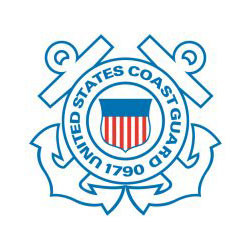Since its founding in 1790, the U.S. Coast Guard has protected the welfare of mariners. Today, that commitment encompasses not only threats from the sea, but also from those who commit crimes upon it.
“Mariners have the right to work in a professional setting that is free from the threat of sexual offenses,” said Rear Adm. John Mauger, Coast Guard Assistant Commandant for Prevention Policy. “Sexual assault is a crime. When it happens aboard a U.S. vessel it must be reported to the Coast Guard. Trained Coast Guard investigators will respond and we will hold offenders accountable.”
Prevention begins as soon as a mariner seeks a credential to sail on a U.S.-flagged vessel. The Coast Guard merchant mariner credentialing application process restricts convicted sex offenders from obtaining a credential, regardless of whether the underlying crime occurred aboard a vessel.
The Coast Guard stands ready to investigate each report or tip alleging that a credentialed mariner committed a sexual assault. The Coast Guard Investigative Service (CGIS) will initiate an investigation and gather additional information for all reports of sexual assault, or other crimes at sea. Coast Guard investigators work alongside Coast Guard attorneys to ensure they gather sufficient evidence to refer the case to the Department of Justice for potential prosecution. Moreover, the Coast Guard has the authority to investigate and take enforcement action against the mariner’s credential to preclude the mariner from serving as a Coast Guard-credentialed commercial mariner.
“Coast Guard investigators follow all available leads,” said Michael Berkow, Coast Guard Investigative Service Director. “But too often sex crimes are not reported. We encourage victims and witnesses of assault to reach out to the Coast Guard, CGIS, or local authorities to ensure the allegations are investigated.”
To facilitate timely reporting, CGIS employs a mobile app called CGIS Tips. Individuals can anonymously communicate with an agent via the app while also having the ability to upload images and additional information directly from a smart phone or computer.
The app interfaces with federal, state, and local agencies to facilitate timely information sharing. The Coast Guard receives an average of 15-20 tips per month, many of which have led to further criminal action. Reports may also be made on the Coast Guard Investigative Service website, through the Tip Form, or by contacting any CGIS regional office.
Shipboard climates, which are tolerant of assaults, undermine mariner welfare and maritime safety. Everyone has a duty to look out for their shipmates by creating a safe and respectful climate aboard.
U.S. Coast Guard
Washington, D.C.




